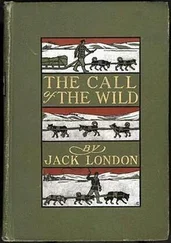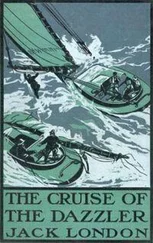Jack London - The Red One
Здесь есть возможность читать онлайн «Jack London - The Red One» весь текст электронной книги совершенно бесплатно (целиком полную версию без сокращений). В некоторых случаях можно слушать аудио, скачать через торрент в формате fb2 и присутствует краткое содержание. Жанр: Классическая проза, на английском языке. Описание произведения, (предисловие) а так же отзывы посетителей доступны на портале библиотеки ЛибКат.
- Название:The Red One
- Автор:
- Жанр:
- Год:неизвестен
- ISBN:нет данных
- Рейтинг книги:4 / 5. Голосов: 1
-
Избранное:Добавить в избранное
- Отзывы:
-
Ваша оценка:
- 80
- 1
- 2
- 3
- 4
- 5
The Red One: краткое содержание, описание и аннотация
Предлагаем к чтению аннотацию, описание, краткое содержание или предисловие (зависит от того, что написал сам автор книги «The Red One»). Если вы не нашли необходимую информацию о книге — напишите в комментариях, мы постараемся отыскать её.
The Red One — читать онлайн бесплатно полную книгу (весь текст) целиком
Ниже представлен текст книги, разбитый по страницам. Система сохранения места последней прочитанной страницы, позволяет с удобством читать онлайн бесплатно книгу «The Red One», без необходимости каждый раз заново искать на чём Вы остановились. Поставьте закладку, и сможете в любой момент перейти на страницу, на которой закончили чтение.
Интервал:
Закладка:
“I tell you I reformed, and gave myself in passion and sincerity to a religious experience that has made me tolerant of all religion ever since. I discharged my best captain for immorality. So did I my cook, and a better never boiled water in Manatomana. For the same reason I discharged my chief clerk. And for the first time in the history of trading my schooners to the westward carried Bibles in their stock. I built a little anchorite bungalow up town on a mango-lined street squarely alongside the little house occupied by Ebenezer Naismith. And I made him my pal and comrade, and found him a veritable honey pot of sweetnesses and goodnesses. And he was a man, through and through a man. And he died long after like a man, which I would like to tell you about, were the tale of it not so deservedly long.
“It was the Princess, more than the missionary, who was responsible for my expressing my faith in works, and especially in that crowning work, the New Church, Our Church, the Queen-mother’s church.
“‘Our poor church,’ she said to me, one night after prayer-meeting. I had been converted only a fortnight. ‘It is so small its congregation can never grow. And the roof leaks. And King John, my hard-hearted father, will not contribute a penny. Yet he has a big balance in the treasury. And Manatomana is not poor. Much money is made and squandered, I know. I hear the gossip of the wild ways of the beach. Less than a month ago you lost more in one night, gambling at cards, than the cost of the upkeep of our poor church for a year.’
“And I told her it was true, but that it was before I had seen the light. (I’d had an infernal run of bad luck.) I told her I had not tasted liquor since, nor turned a card. I told her that the roof would be repaired at once, by Christian carpenters selected by her from the congregation. But she was filled with the thought of a great revival that Ebenezer Naismith could preach - she was a dear saint - and she spoke of a great church, saying:
“‘You are rich. You have many schooners, and traders in far islands, and I have heard of a great contract you have signed to recruit labour for the German plantations of Upolu. They say, next to Sweitzer, you are the richest trader here. I should love to see some use of all this money placed to the glory of God. It would be a noble thing to do, and I should be proud to know the man who would do it.’
“I told her that Ebenezer Naismith would preach the revival, and that I would build a church great enough in which to house it.
“‘As big as the Catholic church?’ she asked.
“This was the ruined cathedral, built at the time when the entire population was converted, and it was a large order; but I was afire with love, and I told her that the church I would build would be even bigger.
“‘But it will take money,’ I explained. ‘And it takes time to make money.’
“‘You have much,’ she said. ‘Some say you have more money than my father, the King.
“‘I have more credit,’ I explained. ‘But you do not understand money. It takes money to have credit. So, with the money I have, and the credit I have, I will work to make more money and credit, and the church shall be built.’
“Work! I was a surprise to myself. It is an amazement, the amount of time a man finds on his hands after he’s given up carousing, and gambling, and all the time-eating diversions of the beach. And I didn’t waste a second of all my new-found time. Instead I worked it overtime. I did the work of half a dozen men. I became a driver. My captains made faster runs than ever and earned bigger bonuses, as did my supercargoes, who saw to it that my schooners did not loaf and dawdle along the way. And I saw to it that my supercargoes did see to it.
“And good! By the Lord Harry I was so good it hurt. My conscience got so expansive and fine-strung it lamed me across the shoulders to carry it around with me. Why, I even went back over my accounts and paid Sweitzer fifty quid I’d jiggered him out of in a deal in Fiji three years before. And I compounded the interest as well.
“Work! I planted sugar cane - the first commercial planting on Manatomana. I ran in cargoes of kinky-heads from Malaita, which is in the Solomons, till I had twelve hundred of the blackbirds putting in cane. And I sent a schooner clear to Hawaii to bring back a dismantled sugar mill and a German who said he knew the field-end of cane. And he did, and he charged me three hundred dollars screw a month, and I took hold of the mill-end. I installed the mill myself, with the help of several mechanics I brought up from Queensland.
“Of course there was a rival. His name was Motomoe. He was the very highest chief blood next to King John’s. He was full native, a strapping, handsome man, with a glowering way of showing his dislikes. He certainly glowered at me when I began hanging around the palace. He went back in my history and circulated the blackest tales about me. The worst of it was that most of them were true. He even made a voyage to Apia to find things out - as if he couldn’t find a plenty right there on the beach of Manatomana! And he sneered at my failing for religion, and at my going to prayer-meeting, and, most of all, at my sugar-planting. He challenged me to fight, and I kept off of him. He threatened me, and I learned in the nick of time of his plan to have me knocked on the head. You see, he wanted the Princess just as much as I did, and I wanted her more.
“She used to play the piano. So did I, once. But I never let her know after I’d heard her play the first time. And she thought her playing was wonderful, the dear, fond girl! You know the sort, the mechanical one-two-three tum-tum-tum school-girl stuff. And now I’ll tell you something funnier. Her playing was wonderful to me. The gates of heaven opened to me when she played. I can see myself now, worn out and dog-tired after the long day, lying on the mats of the palace veranda and gazing upon her at the piano, myself in a perfect idiocy of bliss. Why, this idea she had of her fine playing was the one flaw in her deliciousness of perfection, and I loved her for it. It kind of brought her within my human reach. Why, when she played her one-two-three, tum-tum-tum, I was in the seventh heaven of bliss. My weariness fell from me. I loved her, and my love for her was clean as flame, clean as my love for God. And do you know, into my fond lover’s fancy continually intruded the thought that God in most ways must look like her.
“ - That’s right, Bruce Cadogan Cavendish, sneer as you like. But I tell you that’s love that I’ve been describing. That’s all. It’s love. It’s the realest, purest, finest thing that can happen to a man. And I know what I’m talking about. It happened to me.”
Whiskers, his beady squirrel’s eye glittering from out his ruined eyebrow like a live coal in a jungle ambush, broke off long enough to down a sedative draught from his condensed milk can and to mix another.
“The cane,” he resumed, wiping his prodigious mat of face hair with the back of his hand. “It matured in sixteen months in that climate, and I was ready, just ready and no more, with the mill for the grinding. Naturally, it did not all mature at once, but I had planted in such succession that I could grind for nine months steadily, while more was being planted and the ratoons were springing up.
“I had my troubles the first several days. If it wasn’t one thing the matter with the mill, it was another. On the fourth day, Ferguson, my engineer, had to shut down several hours in order to remedy his own troubles. I was bothered by the feeder. After having the niggers (who had been feeding the cane) pour cream of lime on the rollers to keep everything sweet, I sent them out to join the cane-cutting squads. So I was all alone at that end, just as Ferguson started up the mill, just as I discovered what was the matter with the feed-rollers, and just as Motomoe strolled up.
Читать дальшеИнтервал:
Закладка:
Похожие книги на «The Red One»
Представляем Вашему вниманию похожие книги на «The Red One» списком для выбора. Мы отобрали схожую по названию и смыслу литературу в надежде предоставить читателям больше вариантов отыскать новые, интересные, ещё непрочитанные произведения.
Обсуждение, отзывы о книге «The Red One» и просто собственные мнения читателей. Оставьте ваши комментарии, напишите, что Вы думаете о произведении, его смысле или главных героях. Укажите что конкретно понравилось, а что нет, и почему Вы так считаете.







